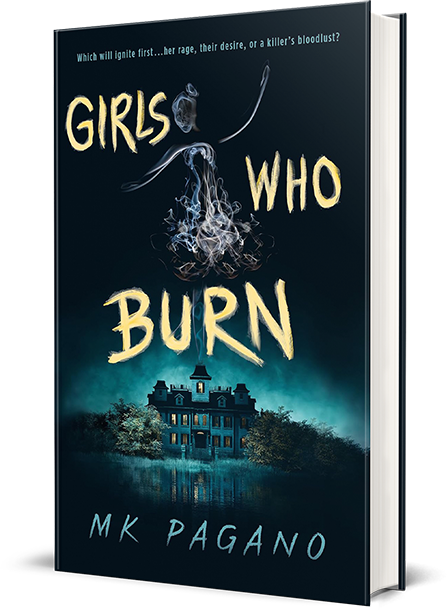Editing Tip: On Receiving Feedback

I’ve been MIA! Apologies for the absence, but I finally MOVED last week, into an amazing duplex in Jersey City that feels positively palatial in comparison to the 375-square-foot apartment we left behind in Brooklyn Heights.
It’s been an insanely stressful month, but yesterday as I was sitting on my deck, coffee and book in hand, watching the sun rise higher in the sky, I knew it was all worth it. I couldn’t be happier with my new place, and being happy in your home is so important to your mental well-being.
Now to get my life back on track, starting with a writing tip, because it’s Monday. Today: tips on how to take feedback.
I’ve mentioned a few times that I’ve been taking a writing class, in which students submit pages of their writing, and then the entire class critiques it all at once. Getting twelve opinions on one piece of writing can be somewhat overwhelming. This is how I tackle it.
1. Listen to everything–but make no decisions right away. As you’re getting your work critiqued, take it all in, jot it all down, highlighting anything that stands out to you–but don’t make any hard and fast decisions right then, right there.
2. Take some time. Don’t immediately rush to your manuscript to make the changes suggested to you. Let it simmer. Then, when you’re ready to edit…
3. Make a list of all the issues. List format is easiest for me, then you can check stuff off as you go.
4. Take note if any issues were mentioned by more than one person. It’s good to get feedback from multiple people because in general, if more than one or two people points out an issue, it means it probably is an issue, and not just their personal opinion. Really try and take an objective point of view on the things they pointed out, and if you’re still resistant to what they said, make sure you don’t have “darling syndrome”, which is keeping something in the story just because you love it, not because it works best for the story.
“Kill your darlings, kill your darlings, even when it breaks your egocentric little scribbler’s heart, kill your darlings.”–Stephen King
5. Look at the issues that were more specialized–and factor in where they came from. I had one guy tell me he didn’t think the first-person present tense worked very well. But this was from a guy who had never picked up a YA book in his life. Present-tense takes some getting used to if you’re used to reading only in past tense, and it’s actually pretty common for YA. No one else, including me, had a problem with it, so I decided to keep the book in present tense.
6. Pay particular attention to feedback from your target market. My class ranges in age from nineteen to sixty-something; as I’m writing a book targeted to teenagers, I’m going to pay more attention to the nineteen-year-old’s opinions than the sixty-year-old’s. You should always have someone from your target market in your beta reader/critique circle; more on that later.
7. Tackle the tiny things first. Grammar and punctuation come to mind, but even little things like “Can you make this passage more descriptive?” are easier to tackle than “Can you completely change this character’s personality?”
8. Take some time off before tackling the big things. Again, for objectivity’s sake, you need distance to be able to cut down your story in the brutal way it probably needs to be cut.
9. Tackle the big things–one at a time. I do have to completely change one character’s personality, which is hard to do. But as I’m editing, it’s tempting to go in and tinker with some other issues that need tinkering with–but I’ve found that in order to keep myself on track, I need to handle one issue at a time.
10. Rinse and repeat. Done revising? Have someone read it again. Revise again. Writing is rewriting, and anyone who tells you otherwise isn’t doing it right.
To go along with this, I should add: Do not take anything personally. It’s hard to show other people your labor of love, even harder to hear that they have problems with it. But getting feedback at the beta level is so important in your journey to finishing a book. You’re too lost in the forest to be able to see the trees, so until they invent some kind of mind eraser software that lets you forget that you wrote this book, other people are crucial to the process.
Anything I missed? Any other tips you have? I’d love to hear!
Photo by Kat Stokes on Unsplash


Great advice!
Thanks!
Pretty much covered most of it! Editing is always the most difficult step for many of us, but it’s the most important! I find it at once pleasurable and frustrating when it comes to editing my own work, but in the end, it’s rewarding. Good suggestions!
So true, I just wish someone had told me when I started out how much time it took!
It sounds like your class is big enough that this could be challenging, but I like talking out issues with trusted readers, particuarly if it’s more of a feeling, such as “This scene didn’t work for me.” My critique group is small, just three of us. Sometimes, the discussion we have about something that’s not working is so much more useful than a comment would be.
But great list! Easier said than done, for sure. Editing is slow, but important work. 🙂
[…] writing class the other day, the class was critiquing my work, as usual, when one of them commented that even though she loved my story, she didn’t envy […]
It looks like you’ve misspelled the word “espeically” on your website. I thought you would like to know :). Silly mistakes can ruin your site’s credibility. I’ve used a tool called SpellDoc.com in the past to keep mistakes off of my website.
-Kerri